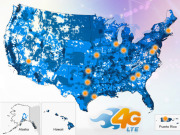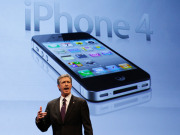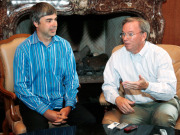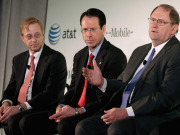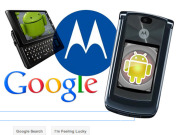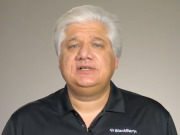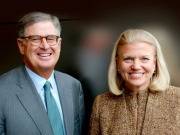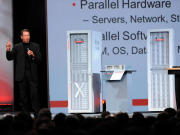What big news made a great impression on you in 2011? Well, 2011, a year full of unforgettable stories, will be remembered for the death of Steve Jobs, Cisco’s refocusing, IPv6’s coming-out party, Google Executive Go-Round, Android Market Feels Malware Pain and more…
2011 could be described as “The Year of…” many things. The tablet market heated up beyond the Apple iPad. 4G wireless took off with the emergence of big-time LTE networks. Governments and hackers screamed for attention by taking down networks, while IPv6 generated interest for giving the Internet a way to carry on.
The shift to cloud computing sped up. despite hiccups. Data centers took on new looks with the emergence of fabric switching architectures and a revamped Cisco. And the shape and faces of the industry changed as IBM, HP, Google and Apple all announced new leaders, and Microsoft, AT&T and Google made blockbuster acquisition bids.
Here’s a look back at 25 stories that marked huge industry change in 2011.
AT&T at the annual CES conference in Las Vegas formally announced its plans to launch LTE services during the summer of 2011 and the carrier followed through. AT&T also announced that it would be launching around 20 different “4G devices” this year, although many would actually run on its 3G HSPA+ wireless network. Separately, Verizon at CES showed off 10 LTE devices it would be selling in the first half of 2011, following its LTE network launch in December of 2010.
Meanwhile, Sprint and Clearwire steadily expanded their WiMAX network but aired plans for LTE, too. All of this made for more of a coming-of-age than coming-out party for 4G wireless at the 4G World event in Chicago during the fall.
Following month after excruciating month of rumors, Verizon and Apple finally got together in January and announced that the iPhone would be coming to Verizon’s network in February. Surveys backed up the notion that there was much pent up demand for the iPhone on a network other than AT&T’s, which had been criticized by many for dropping too many iPhone calls.
The Daily Show host Jon Stewart said the news put an end out our long national iPhone nightmare. In October, Sprint too began selling the iPhone. As of November, AT&T still dominated the market for both the iPhone 4 and 4S.
CREDIT: REUTERS/Brendan McDermid
Google announced in January that it was shaking up top management, with longtime CEO Eric Schmidt becoming executive chairman and co-founder Larry Page taking hold of the CEO reins all in the name of streamlining the company’s top-level decision making.
Google’s performance certainly didn’t suffer in the short term from the move, with the company posting big revenue and earnings increases in Q3, and the company continued to roll out new offerings, such as social networking service Google+, a new threat to Facebook. It’s hard to argue that Schmidt, in coming to Google from Novell in 2001, didn’t make one of the greatest career moves in the history of history.
Egypt’s shutdown of the Internet and cell phone networks in an effort to diffuse protests against the government not only burned free speech advocates around the world, but it cost the country’s economy at least $90 million, according to one report. It also raised the specter of an Internet “kill switch” being put into the U.S. President’s hands. Egypt’s government wasn’t alone in resorting to Internet or cellphone network shutdowns in 2011, with Libya and Syria among the others following suit.
CREDIT: Yannis Behrakis / Reuters
Bring On IPv6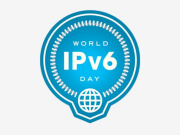
The Internet ran out of IPv4 address space in early February when the Internet Assigned Numbers Authority assigned two of the remaining blocks of IPv4 addresses – each containing 16.7 million addresses – to the Asia Pacific Network Information Centre. This action sparked an immediate distribution of the remaining five blocks of IPv4 address space, with one block going to each of the five Regional Internet Registries.
With IPv4 addresses gone, Internet policy makers ratcheted up the pressure on network operators to migrate quickly to IPv6, and World IPv6 Day, held in June, showed off the capabilities and readiness of the Internet Protocol update went off with nary a hitch. World IPv6 Day, which involved 400 organizations including big name content suppliers, carriers, hardware vendors and software makers, was said to be the most watched tech-related event since New Year’s Eve 1999, when all eyes were on the Y2K bug.
 Nokia Embraces Windows Phone 7
Nokia Embraces Windows Phone 7
Microsoft and Nokia both have a lot to lose — and gain — by their mobile alliance, with the Finnish handset maker deciding to adopt Windows Phone 7 as its smartphone operating system. Nokia initially said it wouldn’t abandon its own platforms, Symbian and MeeGo, yet though even MeeGo’s most ardent backers (Intel, Linux Foundation, Limo Foundation) wound up taking a new direction with a technology called Tizen.
As for Windows Phone 7, reports of Microsoft momentum and lack of momentum seemed to alternate as the year went along.
Apple–and Steve Jobs–Intro iPad 2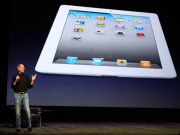
The next generation of Apple’s iPad tablet computer is sleeker and more powerful than the original, and boasts two cameras so that users can use Apple’s FaceTime video chat. CEO Steve Jobs surprised the faithful in February by making the iPad 2 product introduction himself. The iPad 2 unveiling both excited and frustrated enterprise IT pros.
The product has helped to maintain Apple’s tablet market lead and was high on buyer wish lists for the 2011 holiday season, even as a nonstop stream of competitors – some weak, some like Amazon’s Kindle Fire with potential – flood the market.
CREDIT: REUTERS/Beck Diefenbach
 HBGary Goes After Anonymous–and Loses
HBGary Goes After Anonymous–and Loses
Security company HBGary Federal set off an ugly chain of events in February when CEO Aaron Barr threatened to expose organizers of online activist group Anonymous, which at that time was focused on defending Wikileaks, but later in the year branched out to defend numerous causes. Anonymous taught Barr a hard lesson by breaking into his company’s network, publishing thousands of its emails (including details about plans to create a new kind of rootkit) and exposing personal data on Barr.
Barr had initially planned to expose Anonymous at the Security B-Sides event in San Francisco, but wound up bailing out of that, and HBGary wound up pulling out of the RSA Conference running at the same time in San Francisco. Barr did resurface later in the year with a different security company. Anonymous continued its assault on foes throughout the year, threatening everyone from Facebook to a Mexican drug cartel. Anonymous wasn’t the only game in town either, with another group called LulzSec wreaking havoc in late spring/early summer via websites belonging to the CIA, Sony and others.
Android Market Feels Malware Pain
More than 50 applications containing malware were discovered in Google’s application market in March, a sign that hackers were hard at work trying to compromise mobile devices running the Android OS. In fact, it got so bad that Google threw a “kill switch” to remotely delete infected Android apps.
As the year went on, security vendors issued reports citing a sharp rise in mobile malware targeting Android devices, though Google countered that much of the concern was being raised by security vendors simply looking to hawk their wares.
EMC’s RSA Security division shook the industry in March when its executive chairman announced that a sophisticated cyber-attack on the company might have compromised its two-factor SecurID tokens. The advanced persistent threat attack led some observers to call on those using the tokens for remote access to sensitive information to stop doing so until RSA clarified the extent of possible compromise.
RSA opened up somewhat about the breach as the year went on, disclosing it took a $66 million charge to its financial results associated with coping with the breach. The company said it found two groups were responsible for the attacks, but declined to identify them.
Earthquake/Tsunami Devastate Japan
Beyond the devastating human tragedy that was the world’s main concern in the wake of Japan’s earthquakes and tsunami disaster in March, the high-tech industry was impacted greatly as well.
Taiwanese semiconductor suppliers faced serious raw materials shortages from Japan and concerns were raised about Japanese suppliers to Apple for the iPad 2 as well. Chip plants for Texas Instruments and others in Japan faced months of disruption and undersea telecom cables in the Pacific Ocean were damaged.
CREDIT: REUTERS/Kim Kyung Hoon
AT&T’s proposed takeover of T-Mobile USA in March would have created the biggest carrier in the United States, with some 129 million subscribers. But the union also raised lots of big regulatory, competitive and customer service questions, with plenty of people unhappy about the prospects of this deal going down. Among them: The FCC, which found the proposed $39 billion merger not to be in the public interest and whose draft order in November convinced AT&T to pull out of the original deal and take a $4 billion charge against earnings for ending the original deal.
Meanwhile, carrier consolidation continued via several other deals, including CenturyLink snapping up Savvis and finalizing its Qwest buyout, plus Level 3 buying Global Crossing (See also: 2011’s top tech M&A deals)
CREDIT: REUTERS/Brendan McDermid
Amazon Elastic Compute Cloud’s Bad Stretch
A major outage for Amazon’s EC2 service in April due to undisclosed server problems resulted in customers’ websites being down and/or flakey for days (even for those who took the precaution of signing on for multiple availability zones, and raised all the usual concerns about whether it’s still too early to trust your business to the cloud due to shortcomings in failing over such systems.
Amazon, despite being plugged into social network systems such as blogs and Twitter, was conspicuously quiet about what went wrong, perhaps due to legal concerns. Amazon’s network took another hit in August, though the outage was briefer.
 Sony PlayStation Network: Game Off
Sony PlayStation Network: Game Off
A major hack of Sony’s PlayStation Network knocked the PS3 gaming community offline for days in April and Sony revealed players’ personal information, including credit card numbers, may have been swiped. With more than 70 million people using the network, some called this breach one of the worst ever and a possible ID theft bonanza.
OpenFlow Glows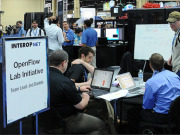
The big Interop 2011 show could almost have been called the OpenFlow show given that it served as one of the first significant exhibitions of OpenFlow switches and controllers, including those shown off in a lab at the event. The software-defined networking technology is designed to enable users to define flows and determine what paths those flows take through a network, regardless of the underlying hardware.
OpenFlow stems from an open source project borne of a six-year research collaboration between the University of California at Berkeley and Stanford University, which hosted the first ever Open Networking Summit in October to hasten software-defined network development and further spread the word about the technology. OpenFlow has momentum, but is far from a sure thing or the only game in town, with heavy hitters such as Cisco still weighing their options.
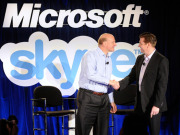 Microsoft-Skype $8.5B Blockbuster
Microsoft-Skype $8.5B Blockbuster
Microsoft’s bold buyout of the voice and video IP company announced in May is seen by analysts as an aggressive move to challenge Google, Facebook and others for the hearts, minds and wallets of online users. Some industry watchers say Microsoft actually had technology in its portfolio to compete with Skype on many fronts, but that buying the company gives Microsoft lots of customers fast.
The combination of the Skype buyout and advances on the Windows Phone 7 front also gives Microsoft its strongest mobile offerings to date. Microsoft has also vowed to integrate Skype with its Lync communications technology.
CREDIT: REUTERS/Susana Bates
Cisco Refocuses
Following disappointing financial results to start its fiscal year 2011, Cisco CEO John Chambers this past spring and summer was forced to acknowledge that the company had been caught off guard by dramatic changes in its core switching and routing market.
Chambers pointed to lower profit margins as customers switched over to newer Cisco products like its Nexus line of switches that boast better price/performance ratios. He said the company needed to make decisions faster and get leaner and more focused, which translated into hiring a COO, laying off some 6,500 employees and ditching some of the businesses it had expanded into, including Flip video cameras.
 Microsoft Previews Windows 8; Heads Into the Cloud
Microsoft Previews Windows 8; Heads Into the Cloud
While it might seem that we’ve only begun to know Windows 7, that Microsoft software has been around now since 2009, so the company has started cranking up Windows 8 hype. Steve Ballmer kicked off 2011 at CES in January by announcing Windows 8 would run not just on x86 hardware but also on ARM processors so common on tablet computers.
Microsoft has further tantalized potential users by demoing boot times of less than 10 seconds for Windows 8 machines and previewing a user interface dubbed Metro that borrows heavily from the company’s touch-friendly Windows Phone interface.
Meanwhile, Microsoft is not oblivious to the move by many customers to the cloud. Microsoft in June debuted its Office 365 cloud service — the company’s answer to Google Apps — and the latest Microsoft offering designed to expand the company’s reach beyond packaged software. Microsoft is giving some organizations big incentives to use the new offering. Office 365 complements earlier Microsoft cloud offerings, including its Azure platform-as-a-service, which hasn’t caught on in a big way yet. Microsoft said late in the year that Office 365 was proving to be a big hit, especially with small businesses. (Also see: “Microsoft Office 365 vs. Google Apps for Business”)
HP: Out With the Old, In With the New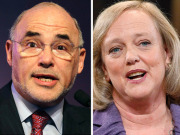
HP, becoming more focused on software and services under new chief Leo Apotheker, announced in August it was exploring the sell-off of its PC market leading Personal Systems Group and shuttering its TouchPad tablet business just a month after the tablet was launched.
Then in September, HP’s board ousted Apotheker after he was on the job for just a year and brought in Meg Whitman as the new CEO. Whitman then turned around in October and said HP wasn’t ditching its PC business after all. Meanwhile, HP also announced plans to buy analytics software company Autonomy for $10 billion.
Google announced in August its biggest acquisition ever, a $12.5 billion deal for Motorola Mobility that turns out to be in large part about obtaining oodles of patents that can be used to defend the Android ecosystem against infringement lawsuits and countersue as well.
The deal raised plenty of questions regarding that ecosystem of partners, however, such as whether Google would now be competing with phone and tablet makers with its own Droid and Xoom offerings via Motorola Mobility.
Steve Job Dies
The Apple co-founder who resigned from the company in the mid-1980s and returned a decade later to make Apple one of the most successful technology companies in the world died at the age of 56 on Oct. 5.
While Jobs’ ill health was well known and he stepped down as CEO in August, the timing of his death was jarring, taking place a day after Apple introduced the iPhone 4S. Tributes to Jobs poured in from fans, friends and the famous.
An outage on Research in Motion’s BlackBerry network for several days in mid-October affected millions of customers and gave the company a huge black eye just as Apple was coming out with its newest iPhone. The outage brought lawsuits from customers and forced co-CEO Mike Lazaridis to make a very public apology.
The outage was just the latest in a year of disappointments for RIM and its customers, as the company’s PlayBook tablet met disappointing reviews and sales have been weak, smartphone releases were delayed and the company whacked 11% of its workforce.
IBM announced in October that 30-year veteran of the company Virginia “Ginni” Rometty would succeed Sam Palmisano as CEO of IBM in January. Industry watchers expect a smooth, drama-free transition to Rometty, who has played a critical role in shaping IBM strategy.
Rometty is currently IBM’s senior vice president and group executive for sales, marketing and strategy. Her promotion, following HP’s hiring of Meg Whitman as CEO, puts women at the top of two of the technology industry’s largest and oldest companies.
 Smartphones, Tablets Rush the Enterprise
Smartphones, Tablets Rush the Enterprise
Many IT shops hemmed and hawed over the years about how to handle employee-owned devices at work, but 2011 marked the year that many employees forced employers’ hands and increasingly, organizations decided allowing employees to use what they wanted might be a win-win (See our “Network World’s Hottest Arguments piece on employee vs. corporate owned devices”).
A wider variety of devices and useful apps, along with lower prices, have put smartphones, tablets and other such devices into more people’s hands (Gartner reported that smartphone sales to end users rose 42% in Q3 from Q3 last year.). And a batch of new multivendor device management tools from third-party vendors as well as device makers such as RIM have made managing heterogeneous mobile environments more feasible and secure.
Big Data is one of those terms that despite oozing of jargon and hype did become the real deal in 2011, with major software vendors such as Oracle and Sybase rolling out Big Data products (in fact, Oracle’s is called the Big Data Appliance) and big name investors like Accel Partners putting its money behind the concept, in the form a $100 million Big Data Fund for startups.
Big Data refers generally to the gobs of information generated by Web sites, social networks, sensors and other sources apart from traditional enterprise applications and that can be put to use for diverse business purposes if organized and analyzed in a sophisticated way. Gartner even added Big Data to its 2011 Hype Cycle for Emerging Technologies, along with gamification and Internet of things, and shows Big Data still has a way to go before it hits the Peak of Inflated Expectations.
CREDIT: REUTERS/Susana Bates
Miss Anything?
For more information about enterprise networking, go to NetworkWorld. Story copyright 2011 Network World Inc. All rights reserved.
PS: Right, all the 25 top Network and IT Industry News Stories of 2011 may influenced some people’s job, thoughts, daily life, plan, decision, etc. . Indeed, IT industry plays an important role in our work and life, every big change and upgrading will influence different industries and fields, which story will be counted in your list of Top Network and IT Industry News Stories of 2011, which one made a deep impression on you? Welcome to share it here…

